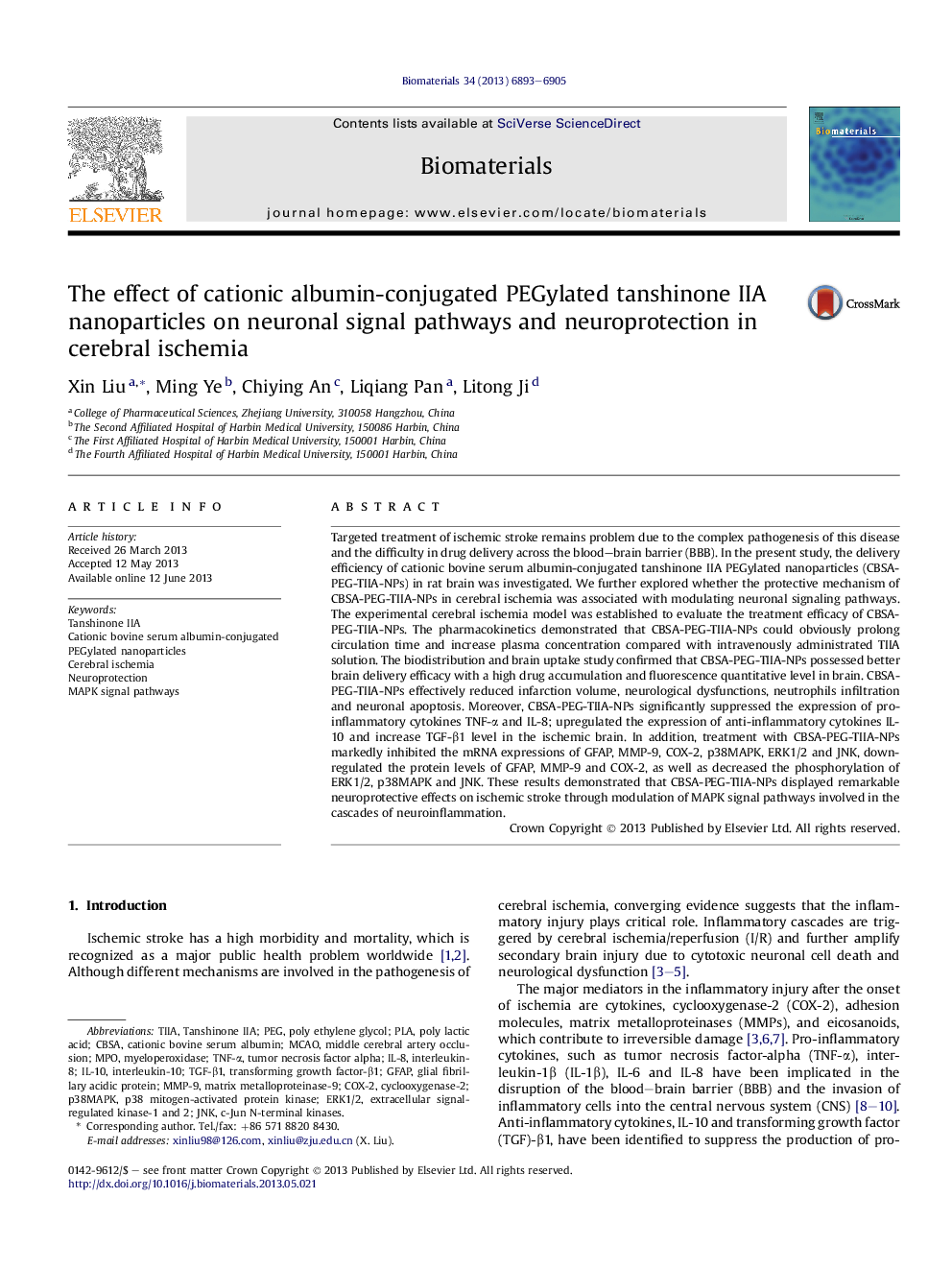| Article ID | Journal | Published Year | Pages | File Type |
|---|---|---|---|---|
| 10228939 | Biomaterials | 2013 | 13 Pages |
Abstract
Targeted treatment of ischemic stroke remains problem due to the complex pathogenesis of this disease and the difficulty in drug delivery across the blood-brain barrier (BBB). In the present study, the delivery efficiency of cationic bovine serum albumin-conjugated tanshinone IIA PEGylated nanoparticles (CBSA-PEG-TIIA-NPs) in rat brain was investigated. We further explored whether the protective mechanism of CBSA-PEG-TIIA-NPs in cerebral ischemia was associated with modulating neuronal signaling pathways. The experimental cerebral ischemia model was established to evaluate the treatment efficacy of CBSA-PEG-TIIA-NPs. The pharmacokinetics demonstrated that CBSA-PEG-TIIA-NPs could obviously prolong circulation time and increase plasma concentration compared with intravenously administrated TIIA solution. The biodistribution and brain uptake study confirmed that CBSA-PEG-TIIA-NPs possessed better brain delivery efficacy with a high drug accumulation and fluorescence quantitative level in brain. CBSA-PEG-TIIA-NPs effectively reduced infarction volume, neurological dysfunctions, neutrophils infiltration and neuronal apoptosis. Moreover, CBSA-PEG-TIIA-NPs significantly suppressed the expression of pro-inflammatory cytokines TNF-α and IL-8; upregulated the expression of anti-inflammatory cytokines IL-10 and increase TGF-β1 level in the ischemic brain. In addition, treatment with CBSA-PEG-TIIA-NPs markedly inhibited the mRNA expressions of GFAP, MMP-9, COX-2, p38MAPK, ERK1/2 and JNK, downregulated the protein levels of GFAP, MMP-9 and COX-2, as well as decreased the phosphorylation of ERK1/2, p38MAPK and JNK. These results demonstrated that CBSA-PEG-TIIA-NPs displayed remarkable neuroprotective effects on ischemic stroke through modulation of MAPK signal pathways involved in the cascades of neuroinflammation.
Keywords
TIIAIL-8TGF-β1Jnkcationic bovine serum albuminMCAOcBSAGFAPTanshinone IIAPLAIL-10p38MAPKCOX-2MMP-9c-Jun N-terminal kinasesMPOERK1/2poly lactic acidmiddle cerebral artery occlusionCerebral ischemiaInterleukin-8Interleukin-10Transforming growth factor-β1tumor necrosis factor alphaCyclooxygenase-2TNF-αMatrix metalloproteinase-9NeuroprotectionmyeloperoxidaseGlial fibrillary acidic proteinp38 mitogen-activated protein kinasePoly ethylene glycolPEG
Related Topics
Physical Sciences and Engineering
Chemical Engineering
Bioengineering
Authors
Xin Liu, Ming Ye, Chiying An, Liqiang Pan, Litong Ji,
